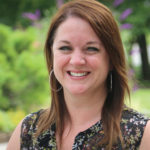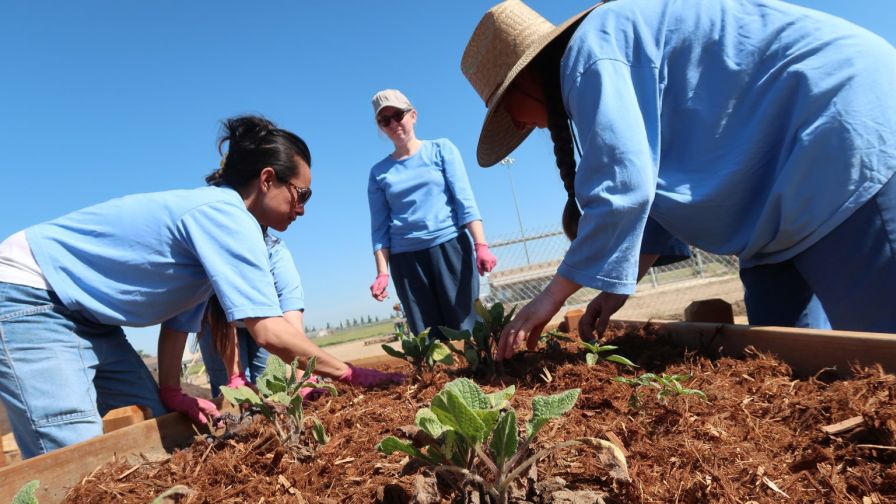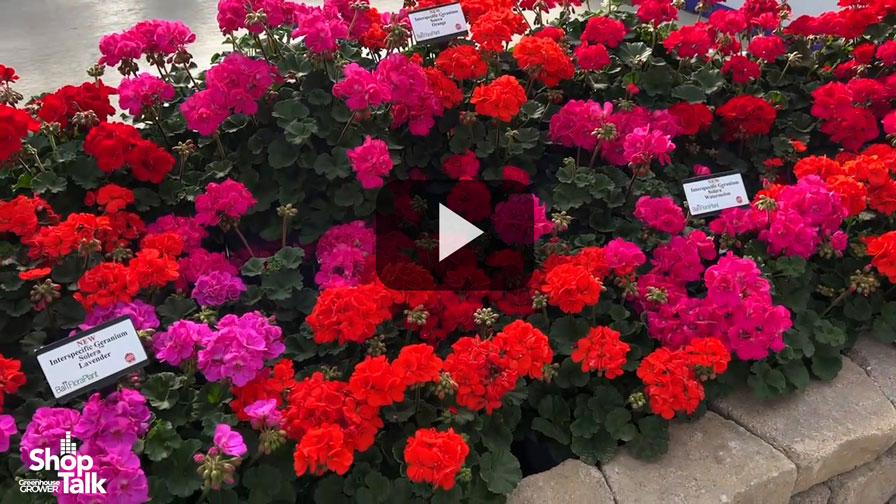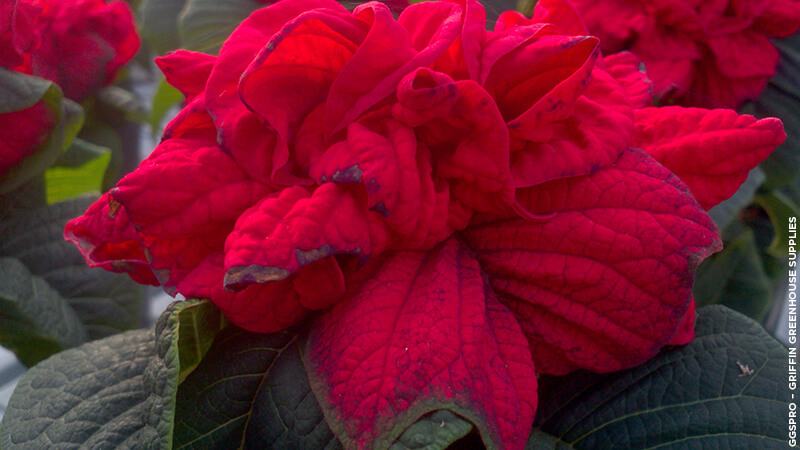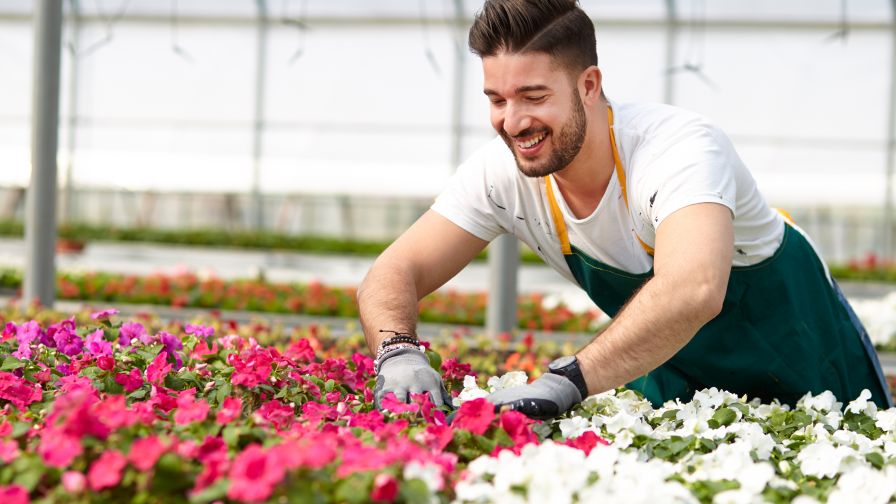Darwin Perennials Takes Production Offshore In Bogota, Colombia
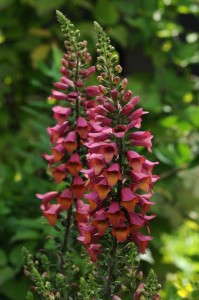 This summer, Darwin Perennials, a division of Ball Horticultural Co., announced its purchase of the perennial unrooted production facility, Green Leaf Plants Colombia, or Flores del Amanecer (FDA), from Aris Horticulture Inc.
This summer, Darwin Perennials, a division of Ball Horticultural Co., announced its purchase of the perennial unrooted production facility, Green Leaf Plants Colombia, or Flores del Amanecer (FDA), from Aris Horticulture Inc.
Located in Bogota, Colombia, FDA has been a supplier of unrooted cutting and tissue-culture propagated perennials and cut flower varieties.
The acquisition strengthens Darwin Perennials’ supply chain into the North American market. For the past four years, Darwin Perennials has been working closely with Florexpo, based in Paraiso, Costa Rica, a major perennial unrooted cuttings supplier in the global market.
That relationship will continue, complemented by Darwin Perennials’ additional supply capabilities through FDA, now named Darwin Colombia. The farm will continue to supply perennial unrooted cuttings and tissue culture young plants into the North American and European markets, and is now wholly owned by Darwin Perennials.
“The Colombian farm gives Darwin Perennials a way to increase the availability of our genetics into the North American market, in addition to our existing supply relationships,” says Mike Klopmeyer, general manager for Darwin Perennials. “We are excited about leveraging the product quality from Darwin Colombia to support the availability of our industry leading genetics.”
Changes At Aris Horticulture
With Darwin Perennials’ acquisition of the Green Leaf Plants farm in Colombia, Green Leaf Plants, the perennial liner producer based in Lancaster, Pa., is now the breeder’s largest customer.
Additionally, this agreement provides Ball Seed Co. access to all of the former Aris Horticulture liner sales out of Green Leaf Plants, giving the distributor a stronger position with a portfolio of high-quality liners.
“We are quite excited about that opportunity, ” Klopmeyer says. “Green Leaf Plants will be a very key supplier to Ball Seed, which in turn is now in a position to be able to service those accounts formerly serviced by Aris Horticultural Services.”
Effective August 1, Aris Horticulture ceased its distribution activity at Aris Horticultural Services (AHS) in Barberton, Ohio, to focus on its Green Leaf Plants perennial young plant supply program.
Green Leaf Plants young plant sales will continue through multiple distributors, including the Blooms of Bressingham and Darwin Perennials programs and other leading perennial varieties on the market. In addition, Aris will continue to operate its Keepsake Plants premium finished program of azaleas, tropical hibiscus and other premium potted plants.
“This strategic move was done to leverage the strengths of the two companies: Aris is a young plant propagation-based company, and Darwin’s strength is in its genetics,” says Bill Rasbach, CEO of Aris Horticulture. “In a market that needs to be as efficient as possible, this was a perfect way for us to work together to make the best use of our strengths for the betterment of the market as a whole.”
Expanding Availability To More Distributors
Darwin Colombia spans approximately 16 acres, and its staff will stay in place, including an all-female management team, Klopmeyer says.
“We’re off to a great start,” he says. “We have a talented staff that is focused on perennials.”
The facility also includes a commercial tissue culture lab, where Darwin Perennials can produce its tissue culture-raised genetics, like Sombrero echinaceas and Carnival heucheras. This will supplement its other labs in India and China, and provide Darwin Perennials with more control over those products, Klopmeyer says.
Another new approach to push Darwin Perennials varieties is branching out to other brokers, Klopmeyer says. Beginning in 2016, Darwin Perennials varieties will be available not only through Ball Seed, but also through multiple distributors as unrooted cuttings.
“We are taking a more open approach to making our genetics available in the market as unrooted cuttings,” Klopmeyer says. “It provides another sales outlet for our varieties in addition to their current availability as rooted cuttings through multiple distributors.”
Part of that includes the differences in the market segments, Klopmeyer says. In addition to selling to greenhouse growers, who also grow annuals, there is also a market segment of growers who only produce perennials, as well as nursery growers who only produce trees and shrubs, but also finish and sell perennials.
“You have to approach the market a bit differently, because there are all these different levels of sales expertise out there at the distribution and selling level,” he says. “So you have to devise a way to control these products with a lot of support behind them, so you can sell into all three segments.”
Taking A Different Approach To Producing Perennials
Ball Horticultural’s business has traditionally specialized in annuals breeding and production. But over the last few years, growth of consumer interest in perennials has caused that category to grow. Seeing this, Ball wanted to explore opportunities in the perennials market.
“Part of it is the need for consumers to get what they perceive to be more value out of a product they can grow in the ground, which gives them a certain amount of color for a certain number of weeks, then comes back the next year, without them having to plant them year after year,” Klopmeyer says. “It’s more of a sustainable, green approach, so there is interest for consumers in those kinds of products.”
Darwin Perennials was founded in 2010, as part of Ball Horticultural’s mission to branch out into vegetative and tissue culture perennial breeding. Ball also owns Kieft Seed, which specializes in producing seed varieties of perennials. The two divisions — Kieft Seed and Darwin Perennials — are completely separate, although they do support one another in promoting each other’s products at events like California Spring Trials. And in breeding, if a vegetative sport pops up in the Kieft Seed division, Darwin Perennials is alerted to that opportunity to develop it as a new product.
Whereas product development of both seed-raised and vegetative annuals has become quite refined over the last couple of decades, things are different in the perennial world, Klopmeyer says. Looking at the approach to perennial breeding, trialing and product introduction, there seemed to be some room for improvement.
“Product development practices are not very mature,” he says. “Typically, a new variety is introduced and it probably hasn’t been trialed very much. Then growers are responsible for learning how to grow it or understanding how it would perform as a finished plant or in the landscape in their markets.”
Darwin Perennials wants to change that approach, to cut out some of the guesswork for growers, taking cues from annual varieties product development mantra and applying that to perennials, Klopmeyer says.
“We’re asking breeders to develop products and specifications for growing new varieties, and we are trialing them in the landscape and trialing them in containers, the way growers would do it,” he says. “Then if it works, we can tell them what zones a plant is hardy to and how they can finish it to get it to retail. If we can do that, there’s lots of opportunity to grow and expand the perennial market with finely tuned and trialed products, prior to introduction.”
Darwin Perennials has been working toward that goal over the past four years and this year, introduced 31 new perennial varieties — a number that is somewhat unprecedented when it comes to perennials, Klopmeyer says.
“This was an unusually large year for us,” he says. “We are trying to develop in the major perennial classes, high-quality genetics that will perform for growers and consumers. Now we need to get them out into the market.”
That’s where the purchase of the farm in Colombia comes in, he says.
“When we get our varieties there next year, we’ll have supply out of both Darwin Colombia and Florexpo, offering more volume into the market.”





